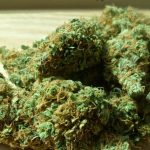Removing Criminal Sanctions for Drug Use: An Interview With Australia21’s Dr Alex Wodak

“We call on Australia’s federal, state and territory governments to treat drug use primarily as a health and social issue and to remove criminal sanctions for personal use and possession,” begins think tank Australia21’s recently released fourth report on illicit drug policy in this country.
While this call to decriminalise personal possession and use from the Australia21 participants might seem like a radical departure from the tough-on-drug stance most major party politicians are toeing, it’s actually in keeping with a growing global awareness that a different approach to drugs is needed.
Another key concept outlined in the We All Pay the Price report is that most Australians who use illegal drugs will not experience any harms unless they come into contact with the criminal justice system, underscoring that it’s drug laws that are wreaking most of the havoc in the community.
Significantly, the 36 participants in the Australia21 roundtable last March are experts in drug treatment, drug law, community welfare and the social effects of drug use, so they’re all very well-versed in the evidence that shows the war on drugs results in the opposite of its stated aims.
Indeed, former Australian Federal Police commissioner Mick Palmer is the emeritus director of the think tank. He’s the ex-head of law enforcement who’s well-known for having declared that the nation can’t arrest its way out of the drug problem.
The shining example
Portugal decriminalised all personal drug possession and use back in 2001. At the time, the country was undergoing a heroin crisis. Fourteen years on, the highly-conservative International Narcotics Control Board lauded the Portuguese model as exemplary.
Under this system of decriminalisation, if an individual is found in possession of an amount of an illicit substance that’s deemed for personal use, they don’t face criminal charges, rather they’re sent before a dissuasion panel to ascertain if they need help.
By 2015, the number of drug-related deaths in Portugal had dropped to 3 per million citizens, which was more than five times lower than the European average. While in 2014, drug-related HIV infections plummeted to just 40, compared with 1,016 in 2001.
The decriminalisation of personal use in Portugal did not lead to a spike in drug use. But, it did see a dramatic decrease in the amount of people coming into contact with the revolving door of the criminal justice system. And it also lead many more people to actively seek treatment.
A drug law reform veteran
Australia21 director, Dr Alex Wodak is one of the nation’s preeminent drug law reformists. In the mid-1980s, the doctor was the instigator of the nationwide roll out of needle and syringe programs, which prevented a major HIV outbreak, stabilised hepatitis C rates and saved countless lives.
Today, as the president of the Australian Drug Law Reform Foundation, Dr Wodak is a leading voice in the call to implement pill testing services around the country, which is a move the NSW government continues to refuse to permit in the face of the overwhelming evidence.
Sydney Criminal Lawyers® spoke to Dr Wodak about how most people who use drugs only experience harms if they fall short of the law, why punitive drug laws exacerbate social problems and how the drug law reform debate is gaining traction in this country.
Firstly, the Australia21 report suggests that in certain circles the fact that the war on drugs has failed is well established.
However, amongst the public that’s used to punitive laws and the reasoning behind them the idea is not so common. And for this reason, the political debate on how to shift the paradigm is not happening.
Debates about many political issues occur quite quickly. But, debates about social policy reform often take longer, sometimes as long as one or more generations.
The Dunstan government in South Australia in 1975 was the first in Australia to decriminalise homosexuality.
But, it wasn’t until the Rudd government that a process was undertaken to identify legislation discriminating against homosexual citizens with all but one of these 100 pieces of legislation then repealed or modified.
And it wasn’t until 2017, 42 years after Dunstan, that the remaining legal discrimination – marriage inequality – was finally despatched in Australia.
Laws criminalising abortion and voluntary assisted dying are other examples of protracted social policy reform.
The first black slaves arrived in the US in the first decade of 17th century – the exact date is unknown. The first organisation in the US to abolish slavery wasn’t established for another 150 years.
The only time that slavery came before the Supreme Court, in 1857, the court upheld slavery. The first black US president was not elected until 2008.
Drug law reform has been proceeding slowly in Australia in recent decades. In 1986, the NSW government approved legal needle syringe programs. Within two years, every state and territory followed.
In 1999, the NSW government approved the establishment of a legal Medically Supervised Injecting Centre. In 2016, federal parliament passed laws allowing medicinal cannabis.
In 2017, the Victorian government allowed a Medically Supervised Injecting Room to be established. In 2018, the ACT government allowed pill testing to take place at a youth music event.
The debate about drug law reform has now been comprehensively won. Public advocacy for drug prohibition in Australia has almost evaporated.
In 2016, 55 percent of respondents in a poll by Essential Media supported regulating and taxing recreational cannabis.
In summary, drug law reform is happening in Australia as it is also happening elsewhere in the world. But, it is happening very, very slowly in Australia, like most other social policy reforms. After a long slow start, the pace of drug law reform in Australia recently seems to be accelerating.
In your opinion, Dr Wodak, what has to happen so the political debate around drug law reform becomes mainstream?
It would help if the discussion and debate about drug policy increased. More young people and more families entering the debate would help.
Especially if they went to see their members of parliament, wrote letters to their local newspapers, rang talkback radio, wrote commentaries and used social media.
We also need to hear more from the major religions. The Uniting Church has become quite vocal on drug law reform, but we need to hear more from other Christian and non-Christian religious groups.
Big business also should speak up. The increasing move to drug law reform overseas will increase the pressure for drug law reform in Australia. The 2018 US midterm elections were a huge victory for drug law reform.
A key concept in the report is that “many people who use drugs will not experience harm unless they come into contact with the criminal justice system”. This idea is also hard to grasp for many who’ve lived under the system that treats drugs as a criminal problem.
Gillard, Abbott and Turnbull – three recent Australian prime ministers – admitted to smoking cannabis in their youth. Yet all made it to the top of Australian politics.
Had any of them been caught, charged, convicted and punished for breaking the law, there is no way that they would have ever gone on to become prime minister.
A study compared cannabis offenders in moderate SA with draconian Western Australia. The WA offenders were more likely to have broken up an important relationship, lost their accommodation, become unemployed and also become very angry and felt alienated from their community.
Post punishment cannabis use in the SA and WA groups however was much the same.
Almost 300 million people in the world use illicit drugs every year. Very few of them develop health or social problems as a result of their drug use, but of course some do.
Those who have come to the attention of the criminal justice system are often quite harmed by the process. Our prohibition drug policy makes a bad problem a much worse problem and at great cost.
Can you expand on why a lot of people who use drugs don’t actually experience harms unless they get in trouble with the law?
The majority of people using illicit drugs use cannabis, ecstasy or amphetamines. If cannabis and ecstasy were regulated, a small number would experience health or social harm.
Professor David Nutt – a world leader in this area – estimated that 30 people in the UK died each year after taking ecstasy. As he pointed out this is less than the number of people dying while riding a horse.
This private talk was taped without Nutt’s knowledge and published. The UK government sacked Nutt from his prestigious position as head of an advisory body – the Advisory Council on the Misuse of Drugs.
Deaths and diseases from medical conditions are combined into a metric called DALYs (Disability Adjusted Life Years). All illicit drugs cause 0.9 percent of world DALYs, but the approximately 250 million people who use cannabis account for 0.09 percent of world DALYs.
Cannabis is not a harmless drug, but the harms it causes are modest, especially when compared with substantial problems caused by alcohol and tobacco.
As the late Kofi Annan, the former UN secretary general, said, “I believe that drugs have destroyed many lives, but wrong government policies have destroyed many more.”
When Portugal in 2001 scrapped penalties for people found in possession of personal quantities of drugs, and expanded and improved drug treatment, drug overdose deaths, problematic drug use, crime and HIV infections associated with drug injecting all decreased.
What would you say some of the less obvious negative impacts the current drug laws are having at present?
I am more worried about the very obvious impacts the current punitive drug laws have had over the last half century.
Over that time, the drug market has expanded considerably. The drug market is now far more dangerous as newer drugs are more dangerous than older drugs.
The street price of drugs has fallen considerably and continues to fall. The majority of Australian drug users report in an annual survey that most drugs are “easy” or “very easy” to obtain.
The situation for people living in low and middle-income countries where drugs are produced or trafficked is unimaginably much worse than it is for Australians.
After Mexico began a war on drugs in 2006, 60,000 citizens were killed by drugs traffickers, the police and army over the next 6 years. And 2 percent of the population were relocated to safer areas.
The report also points to “two-way interactions” between current harsh policies and social problems, such as homelessness and family violence. How do these two seemingly separate issues impinge upon one another?
Our drug laws threaten our social cohesion and our social tensions make our drug problems worse.
Some people who use drugs find themselves in a terrible mess. Finding help for someone with a drug problem is not easy. There simply isn’t enough drug treatment available and what is available is sometimes unattractive.
When people decide to do something major about their drug problem, they need help quickly. Going to the end of a long waiting list doesn’t help.
There isn’t enough drug treatment available because funding is scarce. And funding is scarce because governments aren’t really serious about helping people with drug problems.
As a NSW health minister once said to me when we discussed this question, “Alex, there are no votes in alcohol and drug treatment”. Why are there no votes in drug treatment? Because there have been lots of governments talking up the benefits of tough law enforcement.
Imagine someone getting on top of their drug problem and then going to the back of the long queue for a job. Australia provides very little social support, such as accommodation, legal assistance and job training.
European countries do a much better job of all these areas than Australia does. And of course, with a large number of people who are living in poverty and are unemployed, some will drift into drugs and crime.
It is important to understand that Australia’s drug policy makes our social problems worse and our social problems make our drug problems worse.
After 27 years of uninterrupted economic growth, our youth unemployment is still several times that of Japan, which has had negligible economic growth over the same period.
Japan has a tiny illicit drug problem. Australia has a much larger drug problem. What else could be the reason for this difference except the much higher youth unemployment in Australia?
Apart from the loss of liberty an individual can suffer after being convicted for drug offences, what are some of the other ways that incarceration exacerbates drug issues?
A study in NSW prisons I was involved in found that 10 percent of prison inmates using drugs reported that they had started drug use while in prison.
People enter prison with little criminal experience and learn how to get better at committing crime without getting caught.
Having been in prison, people acquire a stigma that they will carry with them long after being released.
Contact with their family in prison is critical, but little attention is given to helping families support their family members while in prison.
Many prison inmates become extremely depressed. Mental health problems are even more common among female inmates. The partners and children pay a heavy price for the incarceration of an inmate.
Once inmates have been released, very little help or accommodation is available for those without a family. There is little drug treatment in prisons, but there is some.
All of these factors increase the likelihood of resuming drug use after release.
Tobacco smoking is banned in many of Australia’s correctional systems despite a lack of evidence of long-term benefit.
So, inmates pay exorbitant black market prices for tobacco in prison. This increases the likelihood of having no savings on release and therefore an inability to pay the rent for accommodation.
The high chance of a relapse to drug use means a high chance of a return to crime and an early return to prison.
The stigmatisation of people who use drugs is another negative aspect of the current situation. In your opinion, why is the stigma around illicit substances so strong? And why is it so detrimental?
Politicians often choose terms when referring to people who use drugs that are extremely stigmatising. The media and then the community pick up the same terminology.
The decision to criminalise certain forms of drug use inevitably stigmatises people who end up using those drugs.
Some people who use illicit drugs will have had unspeakable sexual and physical childhood trauma. Others have been persecuted by different demons. Some will have tried some illicit drugs and drifted on to a state where they found it virtually impossible to stop.
The stigma of drug use is even stronger for women than men. Partly it is the stigma of being different, being a minority.
But as long as we have an international drug control system with international treaties which require certain drugs to be criminalised and consequently domestic legislation reflecting this system, stigma will be ubiquitous and severe.
Some reduction of stigma is possible by encouraging use of more neutral terminology for example. But any major reduction in stigma requires significant drug law reform.
The report also posits the idea that if drug reforms were implemented some seemingly intractable social problems could be positively impacted.
Dr Wodak, what sort of social issues are exacerbated by the criminalisation of certain drugs?
The drug law reform carried out in Portugal in 2001 illustrates the benefits that are possible when changes are made.
The US illustrates the opposite: how severe social problems continue to get worse when an aggressive and punitive drug policy is carried out over decades.
Many US observers see the nation’s drug policy as an attempt in part to maintain the racism which has scarred the country since the early days of slavery.
The US prison population increased from 200,000 in the early 1970s to 2.4 million after four decades of the war on drugs.
Many people ending up in the US correctional system were from racial minorities even though the rate of drug use is similar among white, Hispanic and black populations.
Disadvantaged areas are often largely populated by racial minorities. The drug economy is one of the few strengths in the neighbourhood as large and small business fled high crime rates, high insurance premiums and disinvestment.
And lastly, the Australia21 roundtable was made up of a wide range of professionals from different fields, some of whom were working in positions where they were enforcing these harsh drug laws in the past.
Considering there are former high-level authority figures calling for drug law reform now, as well as the fact that the discussion has progressed so far, do you think we’re at a pivotal moment where we might see a greater move away from the tough on drug stance towards treating drugs as a health and social issue in this country?
Drug policy seems to be at an inflexion point. After decades of slowly increasing discussion, there is now a widespread readiness to acknowledge that drug prohibition is not capable of achieving the objectives of a shrinking drug market with less harm.
People who have spent decades of their life trying to make this system work are more conscious than most of the futility of drug prohibition.
The rate of positive policy change is still slow in Australia, but it does seem to be increasing.
The fact that so many senior and experienced criminal justice leaders are calling for change has made it a little easier for politicians to cautiously accept some changes.







